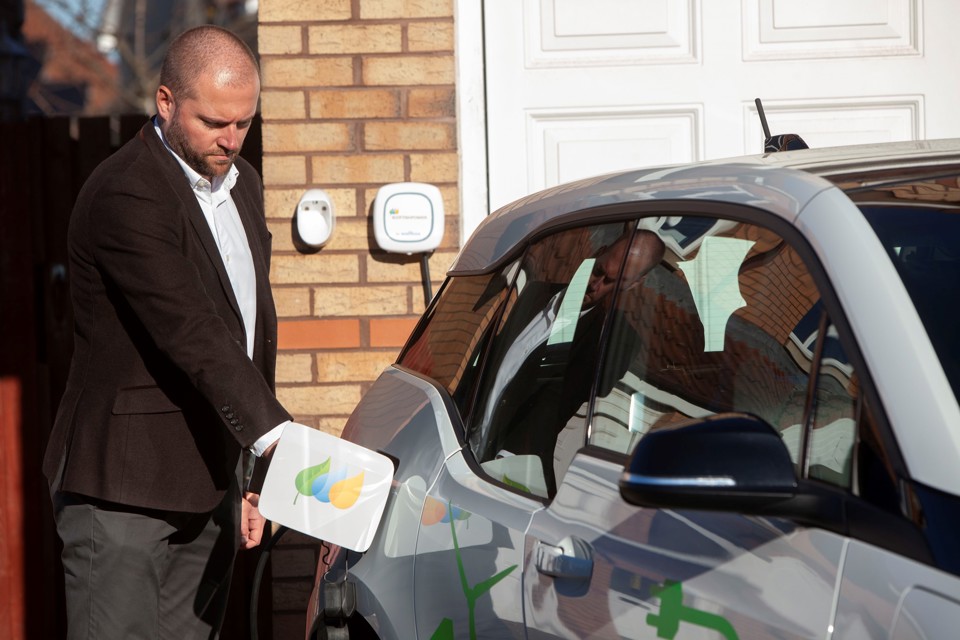Car manufacturers have been accused of setting environmental concerns on one side by delaying their delivery of electric vehicles (EVs) to the market as they prioritise efforts to ‘cash-in on SUVs’.
Transport and Environment (T&E) has accused car manufacturers of pushing SUVs, while holding back electric vehicles (EVs) in what has been described as “a tragedy for our planet”.
The European non-governmental organisation made the claim as official new data from the EU’s environmental watchdog (EEA) shows that the CO2 emissions of new cars increased by 1.6% in 2018 to 120.4 grammes of CO2 per km.
For the first time, CO2 emissions from vans also rose, by 1.2%.
The main driver is the rising sales of polluting yet very profitable SUVs, says T&E.
AM’s sister title, Fleet News, reported that average petrol SUV sold last year emitted 133g/km of CO2 while the average of other petrol cars sold was 120g/km of CO2, according to provisional EU data suggests.
SUVs now account for around a third of new cars sold in Europe – up from 7% in 2008.
Julia Poliscanova, clean vehicles manager at T&E, said: “Carmakers are playing a high risk game where they’re deliberately postponing sales of cleaner cars to maximise SUV-fuelled profits.
“It may please their shareholders but it’s a tragedy for our planet. These figures are a stark reminder that governments need to be much more forceful when it comes to promoting zero emission vehicles, in particular by reforming vehicle taxation and rolling out charge points.”
There are many ways to reduce average car emissions, notably by selling hybrid or electric cars, said T&E. But, carmakers in Europe are lagging behind China and the US in selling battery electric vehicles, with BEVs accounting for just 1% of new cars sold in 2018, according to the EEA.
T&E claims EU carmakers have suppressed the choice of models and their availability, with only 25 battery electric or hydrogen models available in 2018, to ‘save’ zero-emission cars to comply with stricter CO2 limits in 2020 and 2021.
The number of new models will rise sharply to 42 in 2019, 71 in 2020 and 93 in 2021 as carmakers rush to comply with the 2020/2021 targets.
The average CO2 emissions cap for new cars in the EU is being cut from 130g/km to 95g/km and will be phased in from 2020, before being applied across all new registrations from 2021.
There is also an average emissions target for vans of 147g/km, a reduction on the 175g/km set in 2017.
Furthermore, average CO2 emissions from new passenger cars and vans registered in the EU will have to be 15% lower in 2025, and 37.5% lower in 2030, compared with their respective limits in 2021.
Average CO2 values will initially be based on NEDC-correlated figures, before being taken from the new emissions test procedure, the Worldwide harmonised Light vehicle Test Procedure (WLTP), from 2021, Fleet News said.
The penalties for missing targets are punitive. Manufacturers face a fine of €95 (£82) for every gramme of CO2 they are above their limit, multiplied by the number of cars they registered in the EU in the given year.
If a carmaker’s fleet average amounts to 99g/km against a target of 95g/km, and it sells 800,000 cars in the EU, it would have to pay €304 million (£264m).
Business intelligence firm Jato Dynamics suggests, in a worse-case scenario, that if the 2021 conditions were applied today, the total in penalties would account for almost half of the combined net profits of carmakers in Europe.
Poliscanova said: “When it comes to the environment, carmakers only do what the law tells them to do. So they’re all waiting for 2020 when the CO2 standards kick in to roll-out enough plug-in cars to comply with the EU CO2 law. Aided by cheaper batteries and better performance, they will have no difficulty selling them to European consumers.”
Mike Hawes, chief executive of the Society of Motor Manufacturers and Traders (SMMT), labelled T&E's claims as "complete nonsense".
He said: "Manufacturers are investing billions in ultra-low and zero emission vehicles and there is simply no benefit in holding them back – indeed there are more than 40 plug-in models on sale with many more to come this year," he said.
"While industry can introduce the technology it cannot dictate the pace of change. Growing demand is dependent on critical factors, including charging infrastructure and financial incentives and manufacturers want uptake to accelerate given the environmental benefits and significant investments being made.”















Login to comment
Comments
No comments have been made yet.